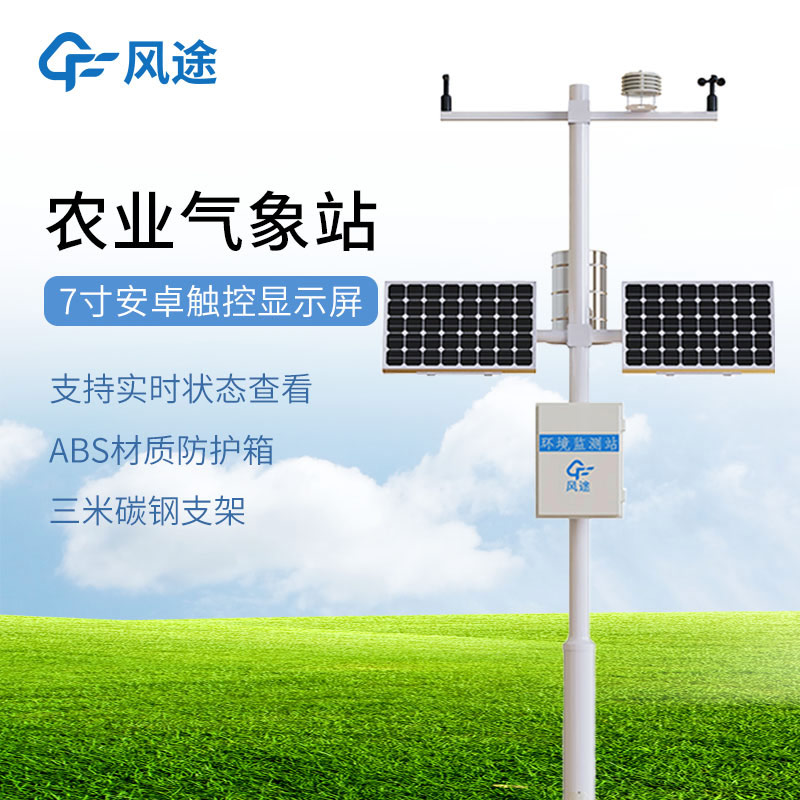Smart agricultural weather stations are an essential component in the development of modern agriculture. They collect and analyze data by integrating various meteorological and environmental monitoring devices, providing scientific basis and decision support for agricultural production. Here are the multiple roles and values of Agricultural Meteorological Stations.
Data Collection and Monitoring
Collect meteorological data such as temperature, humidity, rainfall, wind speed, wind direction, air pressure, and solar radiation.
Monitor soil conditions including soil moisture, pH value, and electrical conductivity.
Monitor crop growth conditions, including crop vigor and pest and disease situations.
Climate Analysis and Forecasting
Analyze historical meteorological data to predict future climate change trends.
Provide short-term and long-term climate forecasts to assist in agricultural planning and disaster prevention.
Disaster Warning and Risk Management
Provide warnings for extreme weather events such as droughts, floods, frosts, and hailstorms.
Help farmers take timely measures to reduce the impact of natural disasters on crops.
Crop Management and Optimization
Adjust agricultural activities such as irrigation and fertilization based on meteorological data to improve resource efficiency.
Provide the optimal environmental conditions for crop growth and optimize the crop growth cycle.
Pest and Disease Control
Monitor the conditions for pest and disease occurrence and predict trends.
Provide scientific control measures to reduce pesticide use and protect the ecological environment.
Agricultural Decision Support
Provide real-time data support to help farmers make more reasonable planting decisions.
Provide data support for agricultural policymakers to optimize agricultural policies.
Research and Education
Provide experimental data for agricultural research to promote scientific and technological progress in agriculture.
Serve as an educational tool to raise public awareness of agricultural meteorology and environmental issues.
Intelligent Control and Automation
Integrate with smart agriculture systems to achieve automated control of facilities such as greenhouses and irrigation.
Improve agricultural production efficiency and reduce labor costs.
Environmental Monitoring and Protection
Monitor the impact of agricultural activities on the environment, such as soil erosion and water source pollution.
Promote sustainable agricultural development and protect the agricultural ecological environment.
Economic Benefit Enhancement
Increase crop yield and quality through precision agriculture practices, increasing farmers' income.
Reduce agricultural production costs and improve agricultural economic benefits.

Article address:https://www.sqqx.net/en/news/243.html

 +86 15898932201
+86 15898932201



